QuestionQUESTION: Hello,
We recently adopted a puppy and brought him home for one night, before he started showing symptoms of Parvo. We brought him back to the breeder the next day. Long story short, he did have Parvo and is now being treated.
My question is, if the dog survives, will he have long-term health problems related to his experience with Parvo? My children got very attached to him in that one day and I'm wondering if we should definitely get a different puppy, or if this puppy would be perfectly healthy after being treated for Parvo. Are there long-term side effects? Would you recommend we not take any risks and adopt a different puppy?
I'm aware of the bleaching of the room, crate, etc required because of the Parvo, but any other information you can provide would be helpful. Also, is there a certain amount of time we need to wait before bringing another puppy in the house, or if we bleached and cleaned everything, will we be fine?
Thanks in advance,
Rob
ANSWER: Yes, there can be residual effects from parvo, depending on whether the parvovirus attacked the puppy's digestive system or his cardiac system. Parvo can also weaken the kidneys, liver, or the immune system. http://www.vetinfo.com/the-long-term-effects-of-parvo-in-dogs.html
This puppy might be perfectly fine if it recovers, but, personally, I would pass on this puppy and find a puppy from a different breeder. Make sure the next one has been vaccinated for a few days (or weeks) before you take it. My preference would be one that has had all of its puppy inoculations. Don't worry about the kids. They will be sad for a bit, but they will love whatever you bring home.
Yes, everywhere the puppy has been or touched needs to be disinfected with a bleach solution, and you should wait 4-8 weeks before bringing in a new (vaccinated) dog just to be on the safe side. http://vetmedicine.about.com/od/dogdiseasesconditions/f/ParvoDisinfection.htm
---------- FOLLOW-UP ----------
QUESTION: Thanks so much for your quick and thorough response, Karen. I hope you don't mind if I ask a follow-up. We're very concerned about finding a way to clean everything the puppy has touched, since we have four kids and they have walked on the floor the puppy was on, then walked through the house. We're also concerned about the yard, since we're reading it can stay in soil for even a year. It sounds like our only options are waiting anywhere from 2 months to over a year and then getting a new vaccinated puppy or older dog. Or, seeing if this original puppy recovers and bringing him back. If we get a new dog, at what age does that dog have its 3 Parvo shots and be fully vaccinated? Isn't there still a chance a vaccinated dog could get Parvo as well?
If our original puppy recovers, are there certain questions we should ask of the vet in order to get an idea of the health of the dog before deciding whether we want to bring it home?
We're just in a really tough spot, as we waited a year to get a puppy, finally did, had a nightmare 24 hrs with it, and are now basically in a position where it's recommended we wait an additional year before bringing a new puppy in. And even then, there's a chance the new puppy could get it. Any thoughts you have would be appreciated. Thanks again!
AnswerFirst of all, all of your questions to me are questions you should be asking your veterinarian. Thankfully, I have never experienced parvo, so I can only tell you what I have read or give you my opinion.
The first inoculation is given at 8-9 weeks. Anything earlier than that is generally negated by the brief immunity that the dam passes on to her puppies through the colostrum in her milk. The next inoculations are then given four weeks later... at 12-13 weeks, and then repeated again four weeks later at 16-17 weeks. The next vaccine is given after one year of age, and then it is repeated every three years after that.
Yes, there is always a chance that an immunized dog can get parvo, but those are usually dogs with compromised immune systems. Most inoculated dogs will not have a problem.
Spray your yard thoroughly with a bleach solution of one part bleach to 30 parts water. If I were you, I would probably do it every two weeks until that new dog arrived! (Ya, I can be a bit obsessive sometimes about some things; you should have seen me when parvo first reared its ugly head 35 years ago<G>) Obviously, the longer you wait to bring in a new dog the better off it will be. You might even consider an older rescue dog who has been kept up-to-date on its vaccines; not all rescue dogs are strays.

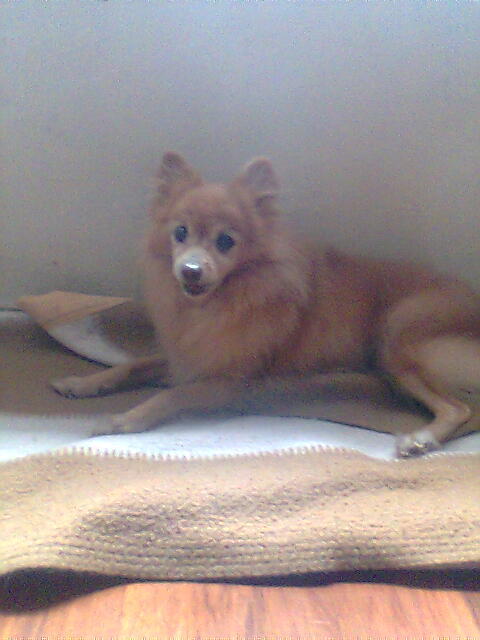 Mastitis
QuestionQUESTION: Good morning Karen.
My Pomeranian is
Mastitis
QuestionQUESTION: Good morning Karen.
My Pomeranian is
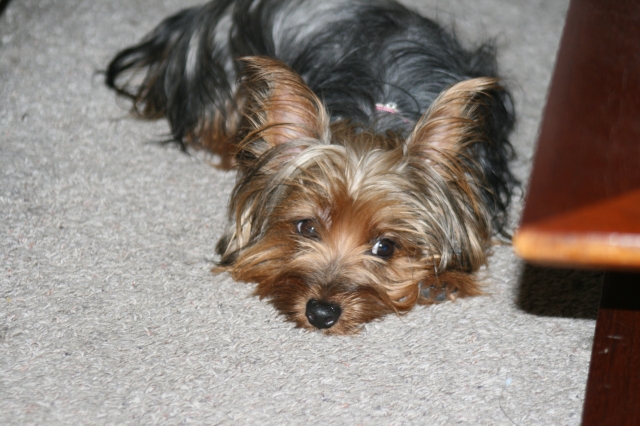 Agression towards kids
Question
Holly Daze
I have a 2.5yo Silky Terrier. She i
Agression towards kids
Question
Holly Daze
I have a 2.5yo Silky Terrier. She i
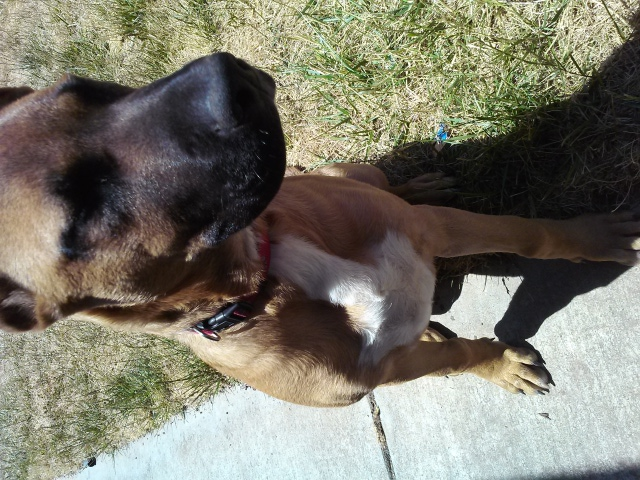 dog breed unknown
Question
dog breed unknown dog breed unknown &nbs
dog breed unknown
Question
dog breed unknown dog breed unknown &nbs
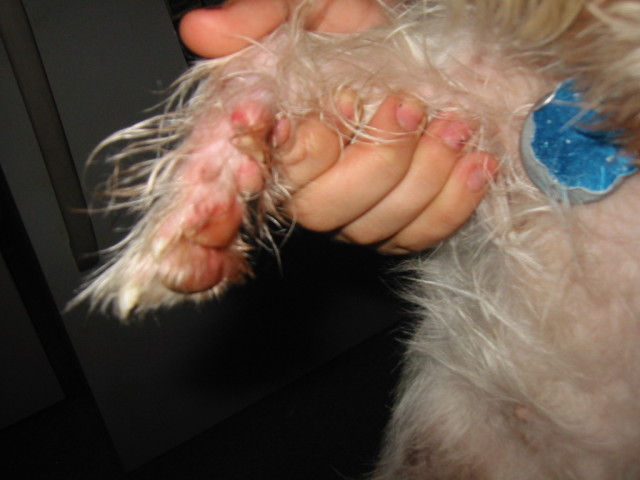 dew claw bleeding
Question
tashas paw
Hi I have a 2yr old female shutzu/M
dew claw bleeding
Question
tashas paw
Hi I have a 2yr old female shutzu/M
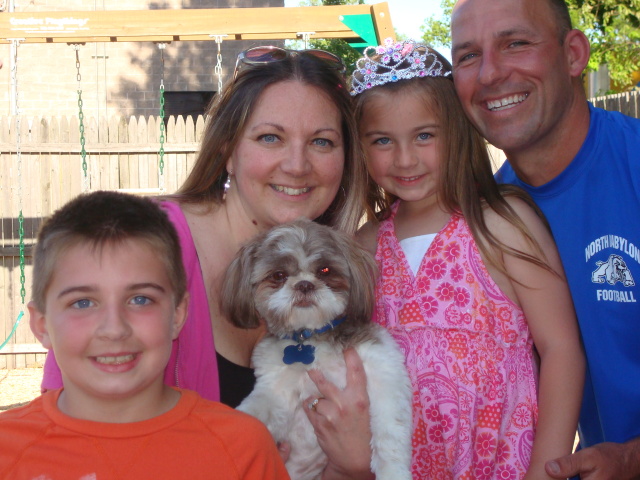 18month old sweet shih tzu starting to growl at me
Question
our family
Hi Valentina,
I have recently beco
18month old sweet shih tzu starting to growl at me
Question
our family
Hi Valentina,
I have recently beco